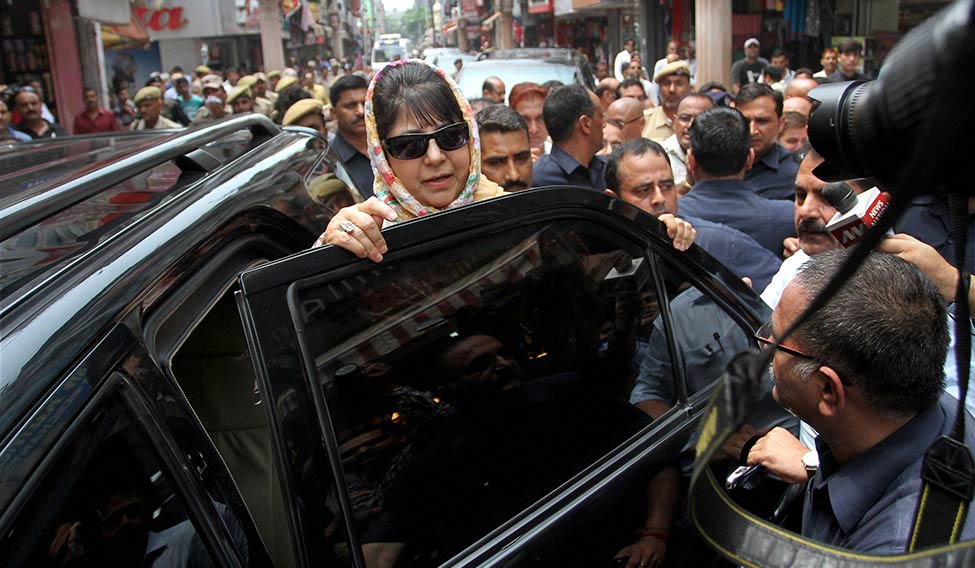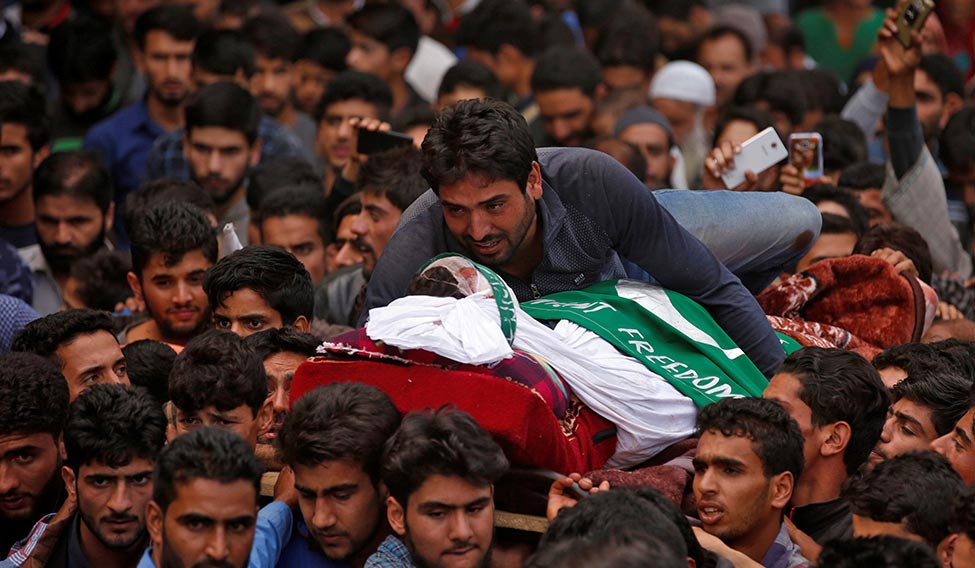When US President Donald Trump unveiled his new Afghanistan policy on August 21, he spoke of the need for India’s proactive approach to ensure stability in south Asia. Trump described as “immense’’ the security threats in Afghanistan and the broader region and asked both India and Pakistan to help resolve it.
He had asked Secretary of Defence James Mattis and his national security team to undertake a comprehensive review of all strategic options in Afghanistan and south Asia. Mattis was in New Delhi in September, and when he met Prime Minister Narendra Modi and Defence Minister Nirmala Sitharaman, he discussed exactly this, “shared priorities for peace, stability and combating terrorism”.
Taking it a step forward, Secretary of State Rex Tillerson on a visit to New Delhi on October 25 discussed ways to strengthen strategic partnership with India. At a joint news conference with External Affairs Minister Sushma Swaraj, Tillerson called India a leader of the region and warned that terrorist safe havens would not be tolerated. Tillerson, of late, has adopted a position distinctly favouring India, calling Pakistan and China “disruptive forces’’. In Delhi, he said India and the US were natural allies.
On its part, the Modi government has shown that it is willing to woo this partner. On October 23, a day ahead of Tillerson’s visit, the government showed its commitment to bring peace to the region by appointing former director of the Intelligence Bureau Dineshwar Sharma as its interlocutor for Jammu and Kashmir.
“I would not call the appointment as appeasement, but surely the government is trying to show its sincerity in talking to all sections of people and groups in Kashmir. On the other hand, it will expose Pakistan, which may be weak internally, but strong enough to push militants into India,” said Arun Choudhary, former special director in the IB.
Sending a former IB chief to the valley is a strong indication that the government is prioritising “internal security’’ in its Kashmir policy. “Sharma’s appointment is entirely from the internal security point of view. He will talk to different shades of people who are disturbing internal security. These include youngsters indulging in stone pelting and their leaders. The growing radicalisation of the youth and the spread of the influence of Islamic State and Al Qaeda will be on top of his agenda,” said Choudhary. Sharma, a 1979-batch IPS officer of the Kerala cadre, has extensive experience working in Kashmir. During the height of the militancy in the early 1990s, he was operating out of the IB office on Gupkar Road in Srinagar. Sharma said during that time there were many places considered liberated zones where heavily armed militants were present, including in Srinagar. “They were calling the shots then and the Army could not go there. But slowly, the Army reclaimed those areas.”
After Union Home Minister Rajnath Singh announced Sharma’s appointment, his friends had a word of caution for him. They said Sharma might need to shed his image as a former IB officer and simply carry his personal traits with him while interacting with Kashmiris. “He should go the valley as Dineshwar and nothing else. He should not be banking heavily on the IB and its network in the valley. The home minister must make it clear that he should be seen as different from the intelligence agency so that he can go and talk to the people and the people can come and talk to him,” said an IB official.
 Mehbooba Mufti said that with the appointment of Sharma, the BJP had fulfilled the promise of holding a dialogue on Kashmir | PTI
Mehbooba Mufti said that with the appointment of Sharma, the BJP had fulfilled the promise of holding a dialogue on Kashmir | PTI
Choudhary warned that most interlocutors wanted to do things for Kashmiris, but never allowed them to speak. “The relationship has to be one of mutual respect. Only then can there be a conversation or a dialogue.” Former chief of the Research and Analysis Wing A.S. Dulat, who is an expert in Track II dialogues, agreed. “New Delhi does not listen. But Dineshwar is a good guy and he will listen. He understands Kashmir and can approach the issue in an uncomplicated way.’’
More than politicians, it is the security forces in Jammu and Kashmir who are hailing Sharma’s appointment. ‘’I don’t want to talk much about politics, but this is a good step,’’ S.P. Vaid, director-general of the J&K Police, told THE WEEK. Major General B.S. Raju, head of the Victor Force, which is responsible for anti-militancy operations in the volatile south Kashmir, is also of the same opinion. “The situation has been brought to a level where a political initiative can be started. It is good to see that a political engagement has started,” he said.
Sharma will have to find a way to connect with the disgruntled elements in the valley. “We hope the Jammu and Kashmir Police are able to lend their assistance in the right manner and direct him to those people. It cannot be the job of the IB,” said a security official. Sharma expressed optimism despite the daunting nature of his job. “I believe the people of Kashmir are also interested in peace and they will come forward for talks. I expect cooperation from all and extend an invitation to all individuals and groups in Kashmir who are willing to talk,” he said.
Separatist groups, however, said they would not accept anything less than complete freedom. “People are observing October 27 as black day and it will convey a message that they are resisting the occupation. It will continue till the last soldier leaves the state,” said a spokesperson for the Joint Resistance Leadership, comprising separatist leaders Syed Ali Shah Geelani, Mirwaiz Umar Farooq and Yasin Malik.
Sharma said local militancy and cross-border terror were both creating problems. “But cross-border activities are much more. Terror groups and anti-India elements are making continuous attempts to keep the pot boiling. But let me go there and assess the situation first,” he said.
The support of the Mehbooba Mufti government will be crucial. The People’s Democratic Party won a big mandate in the 2014 elections on the plank that the BJP needed to be stopped. But when the PDP under Mehbooba’s father Mufti Mohammad Sayeed formed an alliance with the BJP, it angered the party’s supporters. Mehbooba said with the appointment of Sharma, the BJP had fulfilled the promise of holding a dialogue on Kashmir. She said Sharma was a man of credibility and experience.
Some of the former interlocutors, however, seem unhappy about the appointment. “It is a futile exercise and an indication of the government’s resolve to deal with the Kashmiris through the intelligence and military apparatus,” said M.M. Ansari, former interlocutor who was appointed by the United Progressive Alliance government. “This is the worst of all earlier groups and committees. Let the government also appoint an ex-Army chief to negotiate with Pakistan to get Pakistan-occupied Kashmir back.”
WITH TARIQ BHAT







